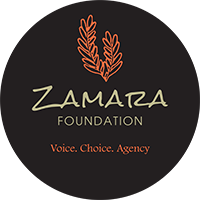
Include PWDs in Voter Listing and Education
The Independent Electoral and Boundaries Commission processes for voter education and registration are not designed with persons with disability in mind.
The deaf people are most affected and they are left out during the electoral exercises.
A study conducted by Handicap International on the participation of persons with disability in Kenya found that PWDs’ participation in elections is generally low. Barriers such as lack of sign language interpreters and braille material at poling and registration centres were cited as big impediments to their inclusivity.
Registration of marginalised groups is a primary benchmark for inclusive and democratic electoral processes.
IEBC should make voter education and the election process inclusive of all people.
In an article, National Council for Persons with Disabilities chairman Peter Muchiri said everyone has a right to participate in elections and those impaired must be considered. IEBC Chairman Wafula Chebukati, in a recent forum with PWDs, acknowledged that PWDs have the right to register as voters without unreasonable restrictions, just like other citizens.
We applaud IEBC’s efforts to register PWDs as voters in places of their convenience and prioritise them in cases of long queues.
However, there is a lot more to be done.
The process of making electoral processes inclusive must take into account that persons with disabilities experience many barriers while taking part in life activities. Developing targeted messages which include information about how and where people with disabilities can vote is important for inclusivity.
Voter education and registration campaigns should provide information about the rights of persons with disabilities to access assistive resources such as braille material, sign language interpreters and accessible polling booths for the physically challenged.
IEBC should mainstream people with disabilities in their content. This means having images and information about people with disabilities in voter education messages. Raising the visibility of PWDs will encourage their participation in public and political life, promote disability rights and motivate them to vote. The commission should also ensure voter education is accessible by providing it in both sign language and braille.
Messages shared using broadcast media, especially TV, aimed at providing voters with knowledge on how to participate in electoral processes should include sign language interpretation.
Deaf communities should also have access to vocabulary on political participation.
Voter education and registration are powerful tools to empower people with disabilities to take part as citizens equal to others. Making these processes inclusive is essential for bringing about equality for all.
Teresa Loch is a sexual and reproductive health and rights advocate
